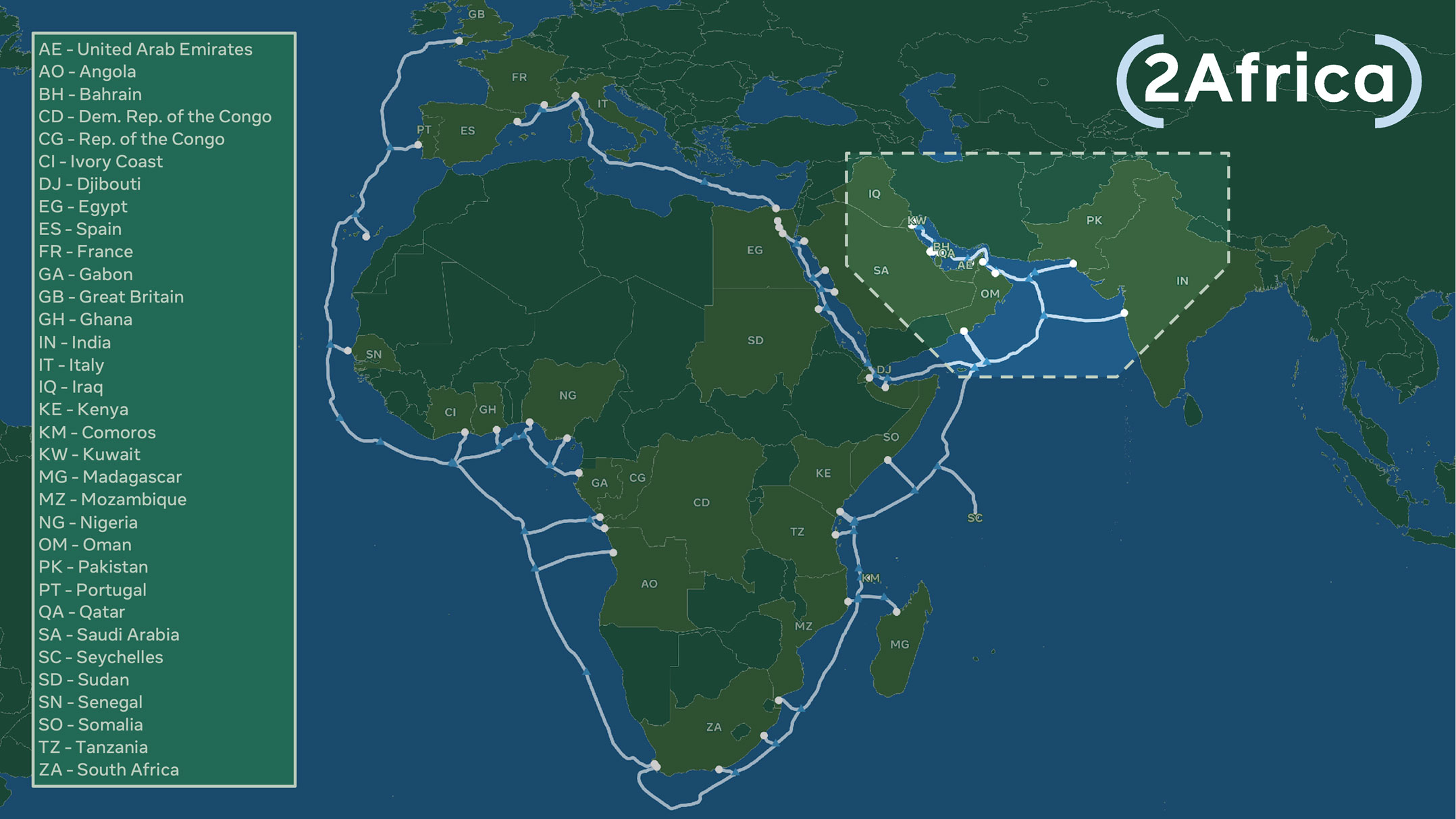 The consortium behind the planned 2Africa submarine cable system – which includes backers such as Facebook and MTN Group – has announced the project will be expanded further, making it the longest such system ever deployed.
The consortium behind the planned 2Africa submarine cable system – which includes backers such as Facebook and MTN Group – has announced the project will be expanded further, making it the longest such system ever deployed.
The system will get a new segment, known as the 2Africa Pearls branch, which will see it extended to the Arabian Gulf, India and Pakistan. “This extension will bring the total length of the 2Africa cable system to over 45 000km, making it the longest subsea cable system ever deployed,” the consortium said in a statement on Tuesday.
The 2Africa consortium is made up of China Mobile International, Facebook, South Africa’s MTN GlobalConnect, France’s Orange, Saudi Arabia’s stc, Telecom Egypt, the UK’s Vodafone and Wiocc, which is an investor in the Eassy cable system along Africa’s east coast.
“Now connecting three continents, Africa, Europe and Asia terrestrially through Egypt, 2Africa creates unique connectivity by adding vital landing locations in Oman (Barka), United Arab Emirates (Abu Dhabi and Kalba), Qatar (Doha), Bahrain (Manama), Kuwait (Kuwait), Iraq (Al-Faw), Pakistan (Karachi), India (Mumbai), and a fourth landing in Saudi Arabia (Al Khobar),” the statement said.
“The new 2Africa branch joins recently announced extensions to the Canary Islands, the Seychelles, Comoros Islands, Angola, and a new landing to south-east Nigeria,” it said.
“As with other 2Africa cable landings, capacity will be available in Pearls landings at carrier-neutral facilities or open-access cable landing stations on a fair and equitable basis, encouraging and supporting the development of a healthy Internet ecosystem.”
Three billion
The original 2Africa route, announced in May 2020, would have brought international connectivity to markets with a population totalling 1.2 billion people. With the Pearls expansion, the cable system will now reach three billion people, representing 36% of the global population.
Alcatel Submarine Networks will deploy the new system utilising new technologies such as “spatial division multiplexing” that allow the deployment of up to 16 fibre pairs, double that of older technologies, and bringing greater and more cost-effective capacity, the statement said.
The consortium did not say when it expects the cable system to be ready for commercial service or provide details of the total cost of the expanded venture. – © 2021 NewsCentral Media




